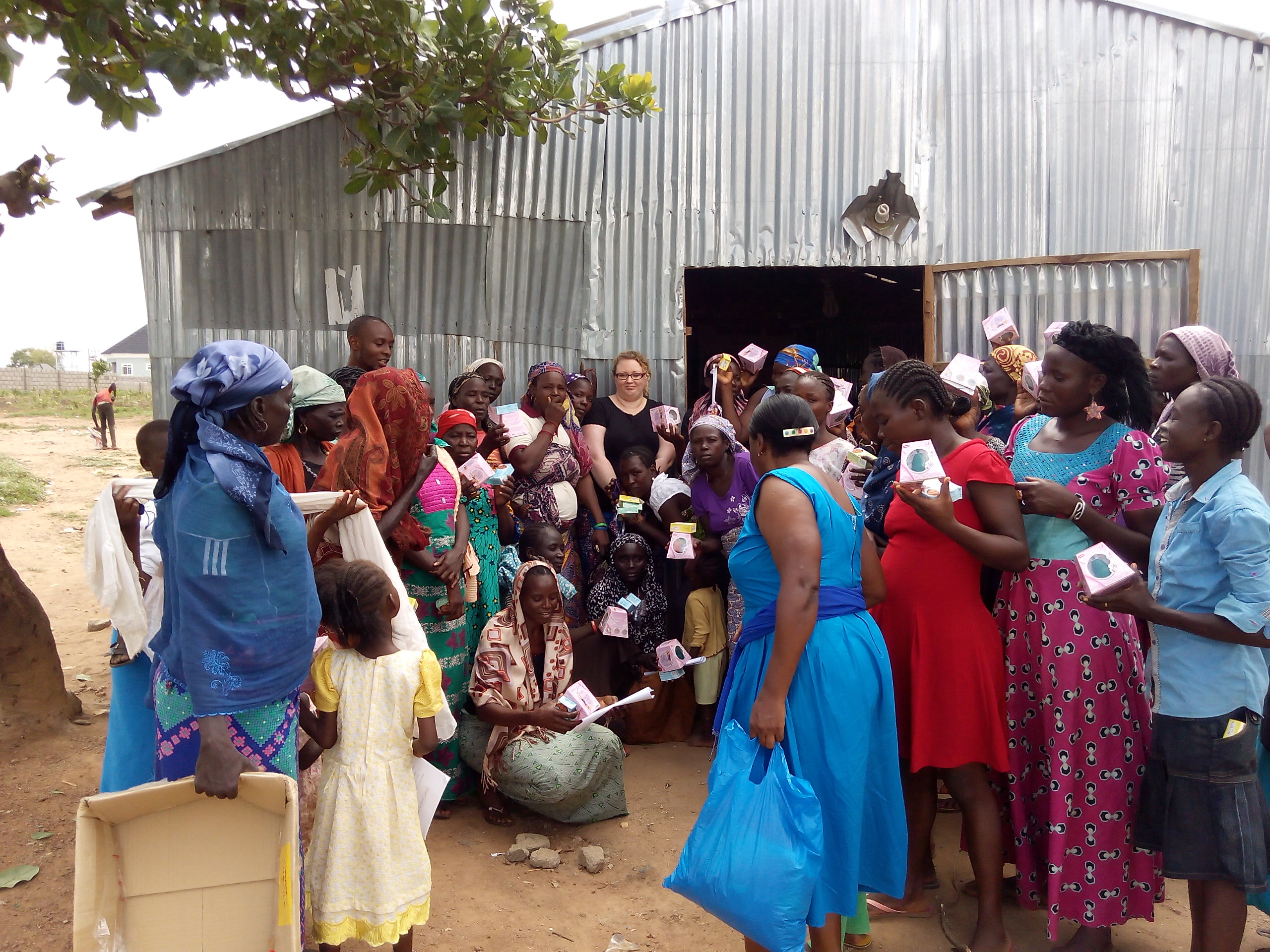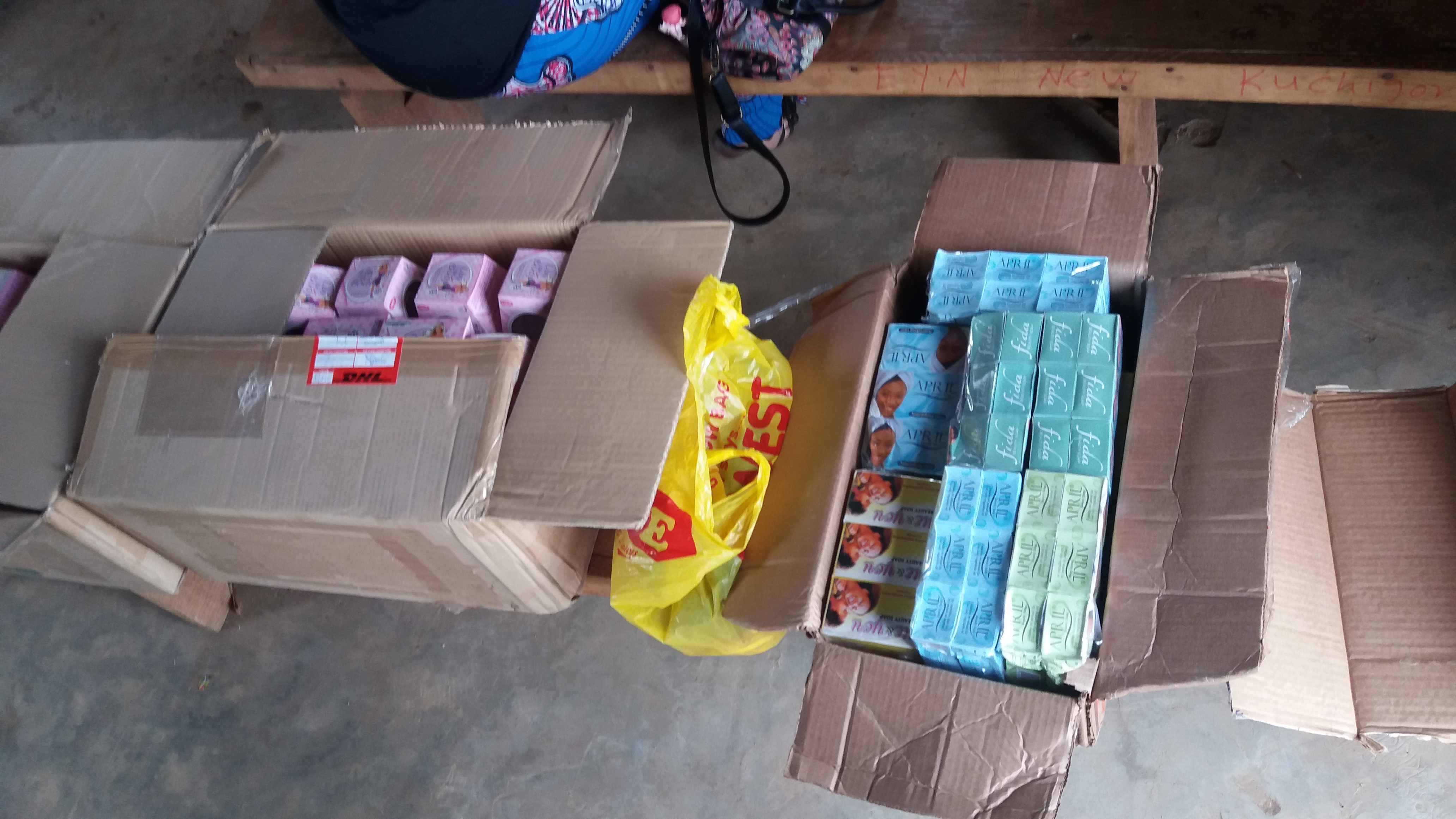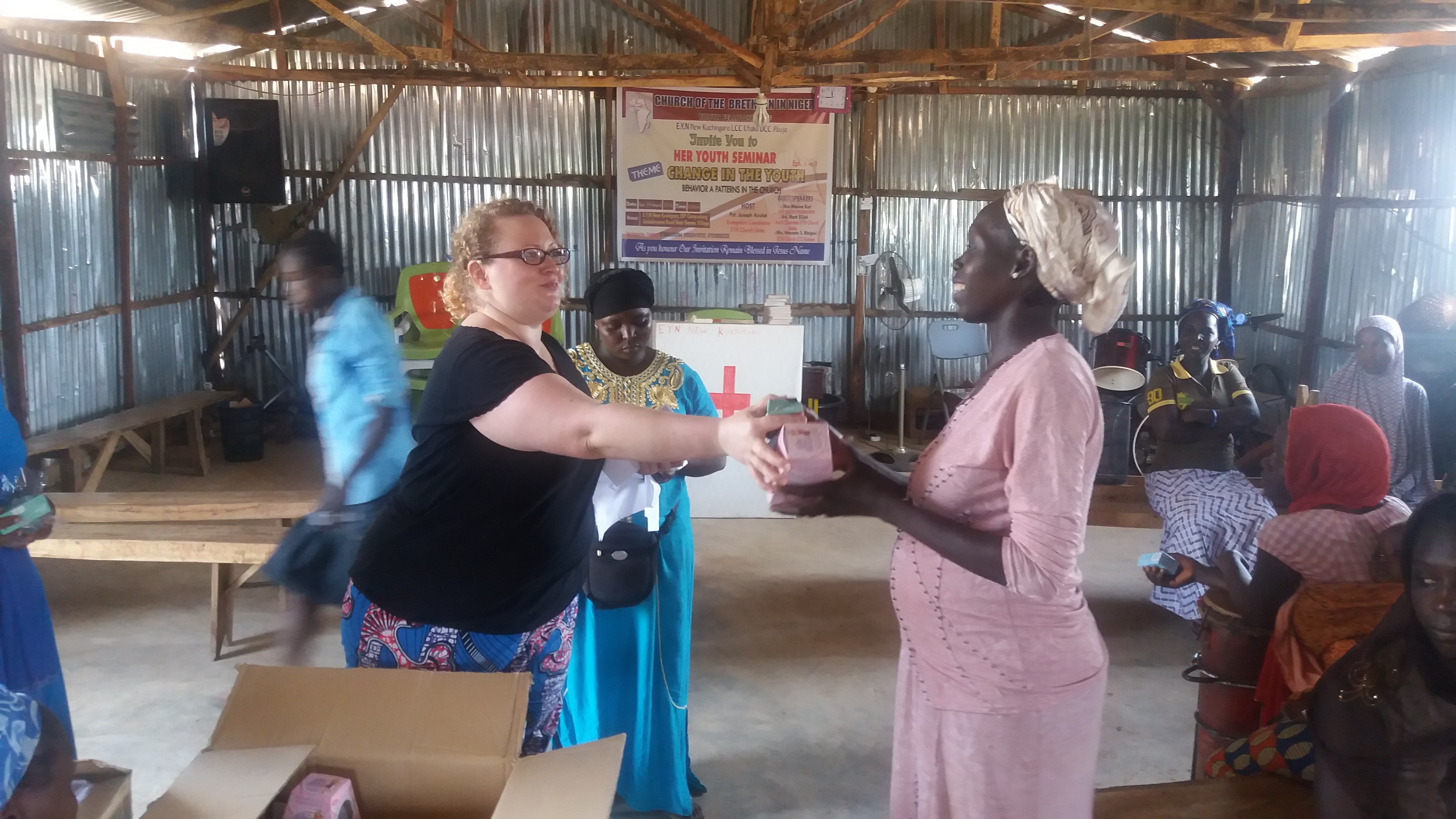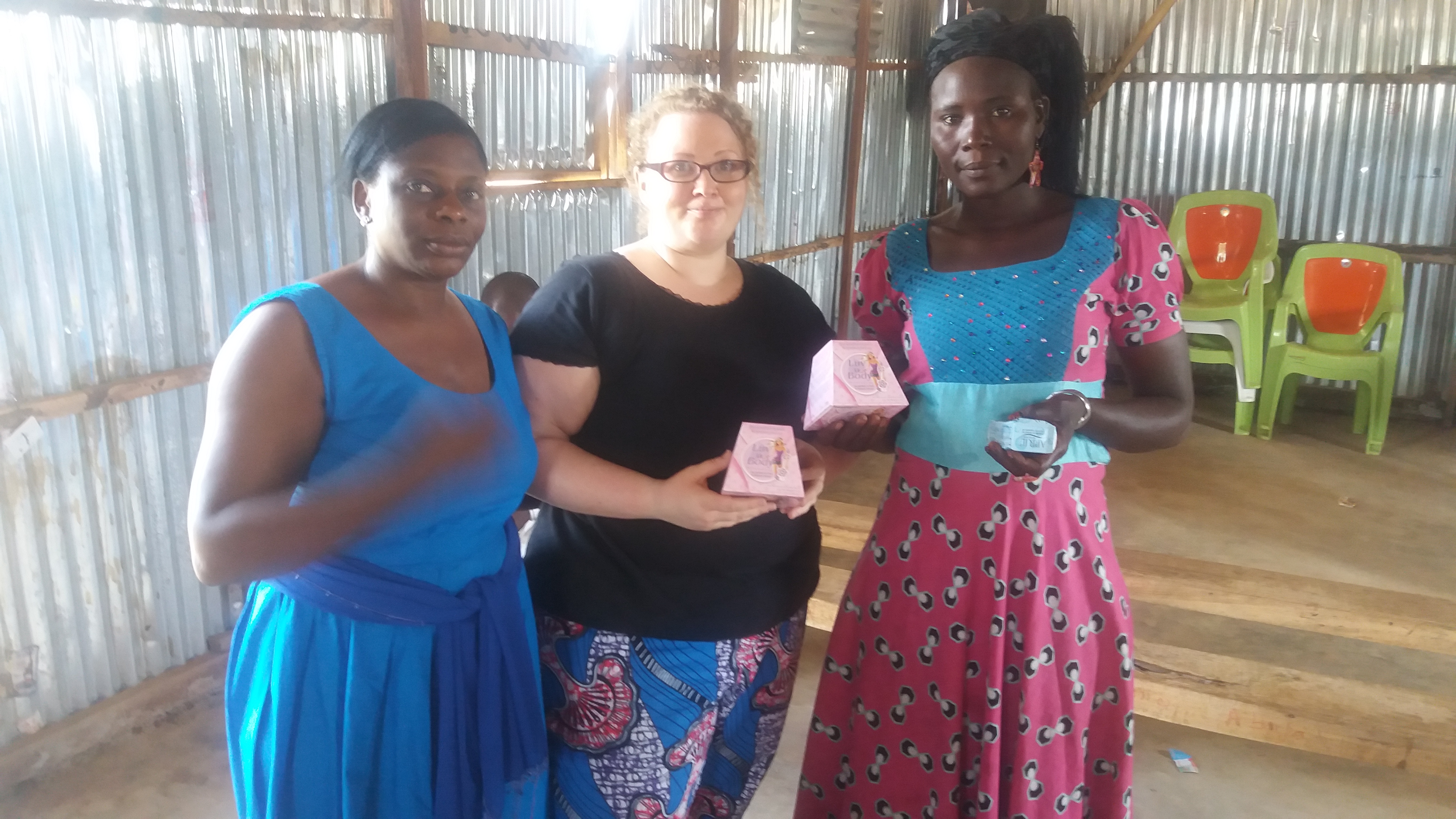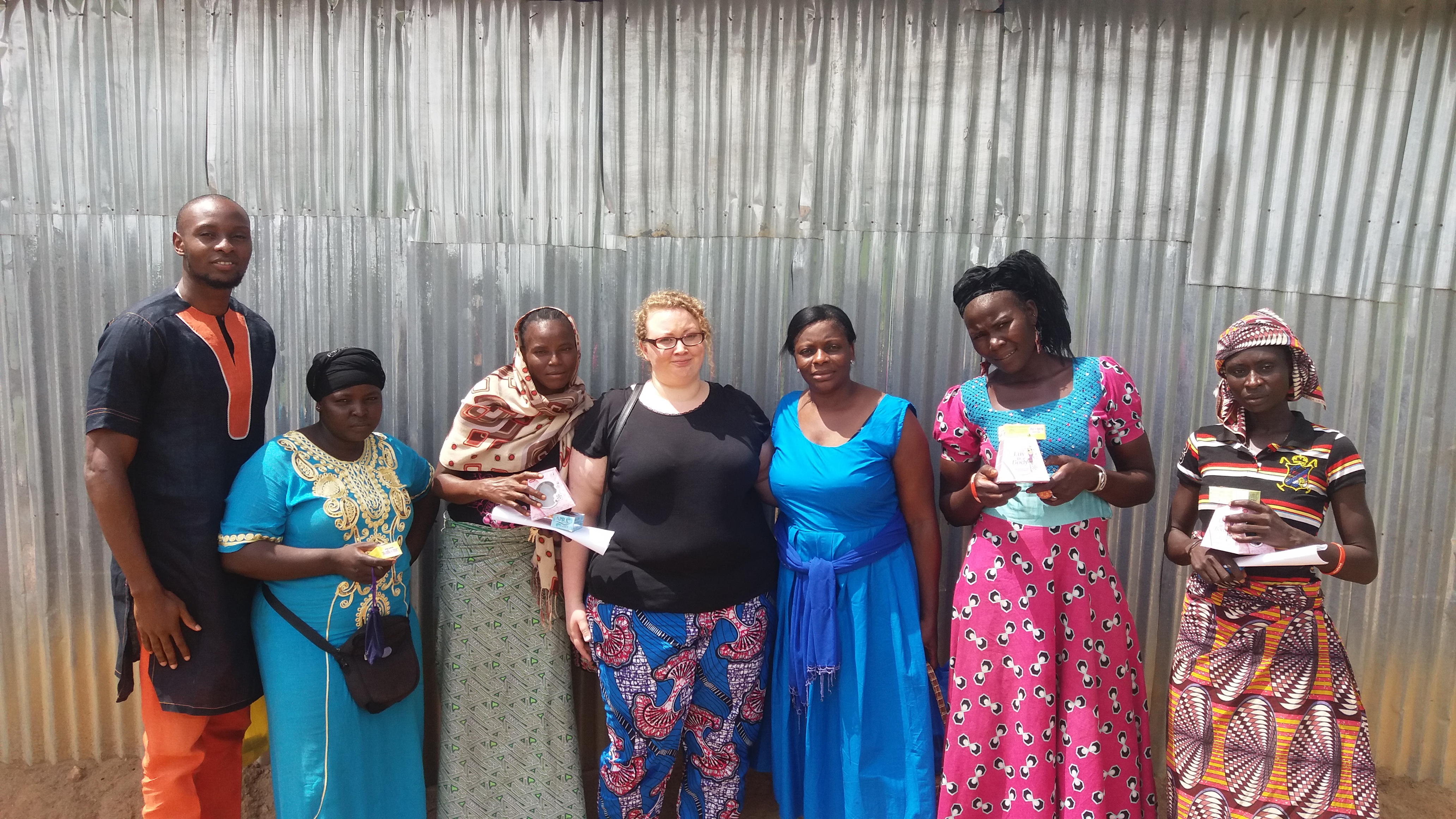Jun 09, 2016 at 01:13 pm
We did it!
Update posted by Nadine HaumannOn Saturday morning, May 28th, we arrived at the idp camp of Kochingoro, Abuja. This date also marked International Menstrual Hygiene Day.
After driving through a nice neighborhood with new buildings and schools, a dusty road led us to the camp in the outskirts of Abuja. People living there have lost their homes to the terror inflicted upon them by the Boko Haram in Nigeria's north, even the children had witnessed family members and friends hacked to death by the terrorists.
Children were running around and playing when we parked the car, curious about what we were doing. We met Ladi, the women leader of the camp, a tall and strong woman in her mid 30s. She already was informed about our project and now assembled the women on the central square near the little school that was sponsored by one of the foreign embassies in Abuja. We put some of the benches and tables together for the women to sit on, under the shade of a tree. With the help if Ifeanyi's lovely Aunty Ruth I introduced the menstrual cups, informed them about their benefits, explained briefly how they are used, and answered questions. We had also prepared a little questionnaire for the women interested in a cup. As menstrual cups come in different sizes, this should help us to find the right size for each woman. We asked for their age, if they had already given birth and how heavy their menstrual flow was. Many women told us they have a heavy flow, sometimes with clots, and asked if they could still use the cups. I could almost feel some relief when we told them that the cups are especially helpful in this case, as they just collect the menstrual fluids instead of absorbing them, and they have a much higher capacity than pads or tampons. Honestly I was surprised how high the interest was, and in the end we had handed out all 80 questionnaires we had prepared. There was even some fear that we wouldn't have enough money to get a cup for all of them, but luckily it was more than enough, also thanks to about 23 cups that had been donated directly and that I brought with me.
Back home we went through the questionnaires, sorting them by the needed sizes, and we also found women for the donated cups. Thanks to the generous help of Nwadi, the owner of “Luv Ur Body” menstrual cups, placing our order went smooth and easy, and a few days later we had two boxes with the cups we needed for the women. Also we even still had some money left, so we decided to get a bar of soap for each woman to help with personal hygiene as well as some supplies for the camp in general, like rice, oil, tomato paste and salt. We got these from my beloved Wuse market in Abuja, a lively and crowded place filled with all kinds of goods from food to household wares, from electronics to clothes and fabrics. Ruth is a master in bargaining, ensuring we get the best price.
On Saturday, June 4th, we
returned to the camp. This time we assembled the women in the little
makeshift church. Ruth helped again with translating to Hausa, as not
all women understand English well. We handed out some info sheets to
help explain a few general things about female anatomy before
explaining how the menstrual cups are used, how to keep them (and
yourself) clean to prevent infections, we shared tips and tricks and
discussed questions. Finally we handed out the cups by name, so each
woman would get a cup that we think would fit her best. In the end we
could even have handed out a few more, and I have been asked if we
would do more projects like this in other places, too. Really, I was
overwhelmed by the interest! While I was promoting the project to
find donors I met so much skepticism by the people, many doubted that
Muslim women would use an internal product, or that the hygienic
conditions would be sufficient. But we had Muslim and Christian women
sitting side by side, all genuinely interested in a simple little
product that can make a woman's life so much easier. They told us
that so far they had to use rags to deal with their periods, it's not
always easy to wash them properly, often leading to infections. The
menstrual cups, being made from medical grade silicone, are easy to
keep clean by simply boiling them in water regularly. The soaps we
provided should help in emphasizing that it is important to always
wash your hands before handling your cup.
We sincerely hope we made the life of the women at least a tiny bit easier, and wish we could do more projects like this in the future. We have even been told about women having to prostitute themselves to be able to buy some pads... while a menstrual cup could be an easy and affordable solution, as they last for up to 10 years if you take good care of them!
The owner of “Luv Ur Body” cups was
also very moved by our success in the camp and would be interested to
support further projects like this. I am so glad we found her, and as
the company is also situated in Nigeria, it was so easy and effective
working together on this, also we supported a local company rather
than bringing cups from Europe. We are so thankful for her ongoing
support and help!
We will continue working on this topic, hopefully being able to support more women with cups and education about women's health and family planning. Thank you all again for your help and support! Without you we couldn't have done this!
All the best,
Nadine & Ifeanyi
